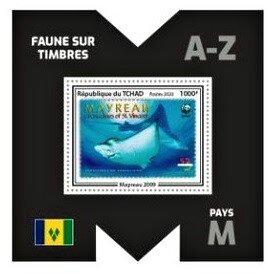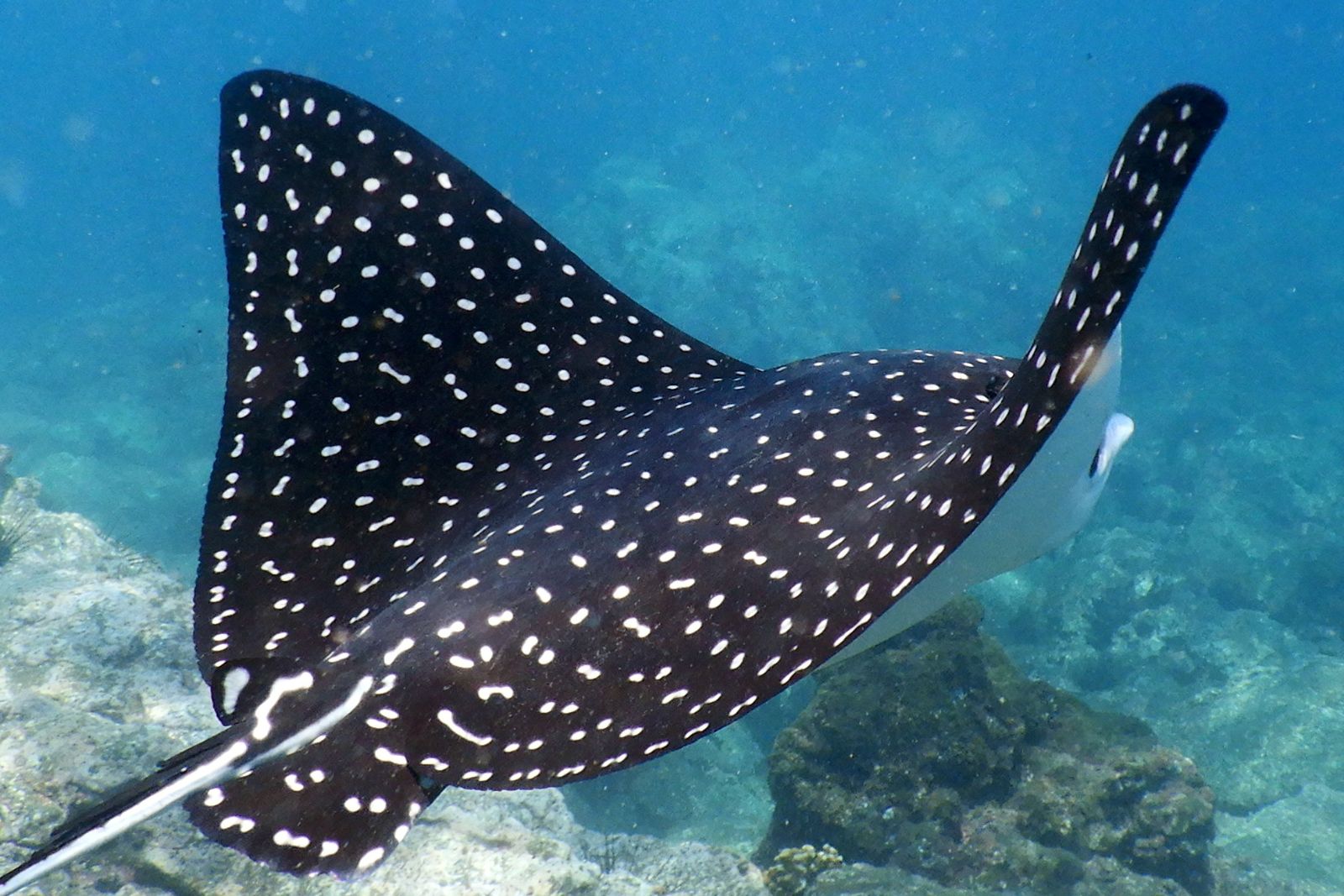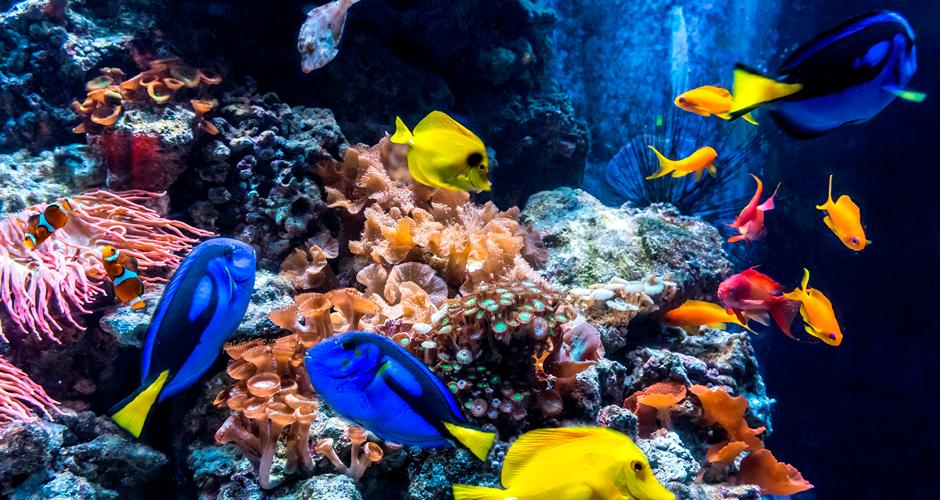Souvenir Sheet: Spotted Eagle Ray (Aetobatus narinari) (Chad 2020)
Spotted Eagle Ray (Aetobatus narinari) (Chad 2020)
30 May (Chad ) within release Stamps on Stamps (2020) goes into circulation Souvenir Sheet Spotted Eagle Ray (Aetobatus narinari) face value 1,000 Central African CFA franc
| Souvenir Sheet Spotted Eagle Ray (Aetobatus narinari) in catalogues | |
|---|---|
| Colnect codes: | Col: TD 2020-122 |
Souvenir Sheet is square format.
Although this issue was authorized by the Chad postal administration, it was not sold in Chad, but was only distributed by the Chad philatelic agency for distribution on the novelty market.Also in the issue Stamps on Stamps (2020):
- Mini Sheet - Fauna on Stamps face value 10*650;
- Mini Sheet - Fauna on Stamps face value 10*650;
- Souvenir Sheet - Bactrian Camel (Camelus bactrianus) face value 1,000;
- Souvenir Sheet - Pink Pigeon (Nesoenas mayeri) face value 1,000;
- Souvenir Sheet - Giant Clam (Tridacna gigas) face value 1,000;
- Souvenir Sheet - Mediterranean Monk Seal (Monachus monachus) face value 1,000;
- Souvenir Sheet - Giant Eland (Taurotragus derbianus) face value 1,000;
- Souvenir Sheet - Maldives Anemone Fish (Amphiprion nigripes) face value 1,000;
- Souvenir Sheet - Wattled Crane (Grus carunculata) face value 1,000;
- Souvenir Sheet - Ruffed Lemur (Lemur variegatus) face value 1,000;
- Souvenir Sheet - Monarch Butterfly (Danaus plexippus) face value 1,000;
- Souvenir Sheet - Micronesian Imperial Pigeon (Ducula oceanica) face value 1,000;
- Souvenir Sheet - Short Beaked Common Dolphin (Delphinus delphis) face value 1,000;
- Souvenir Sheet - Trocaz Pigeon (Columba trocaz) face value 1,000;
- Souvenir Sheet - Lichtenstein's Hartebeest (Alcelaphus lichtensteini) face value 1,000;
- Souvenir Sheet - Eleonora's Falcon (Falco eleonorae) face value 1,000;
- Souvenir Sheet - Hermann's Tortoise (Testudo hermanni) face value 1,000;
- Souvenir Sheet - Aesculapian Snake (Elaphe longissima) face value 1,000;
- Souvenir Sheet - Chinese Pangolin (Manis pentadactyla) face value 1,000;
- Souvenir Sheet - Clouded Leopard (Neofelis nebulosa) face value 1,000;
- Mini Sheet - Imperial Eagle (Aquila heliaca) face value 1,000;
- Souvenir Sheet - Spotted Eagle Ray (Aetobatus narinari) face value 1,000;
Souvenir Sheet Spotted Eagle Ray (Aetobatus narinari) it reflects the thematic directions:
Animals are multicellular, eukaryotic organisms of the kingdom Animalia (also called Metazoa). All animals are motile, meaning they can move spontaneously and independently, at some point in their lives. Their body plan eventually becomes fixed as they develop, although some undergo a process of metamorphosis later on in their lives. All animals are heterotrophs: they must ingest other organisms or their products for sustenance.
Batoidea is a superorder of cartilaginous fishes, commonly known as rays. They and their close relatives, the sharks, comprise the subclass Elasmobranchii. Rays are the largest group of cartilaginous fishes, with well over 600 species in 26 families. Rays are distinguished by their flattened bodies, enlarged pectoral fins that are fused to the head, and gill slits that are placed on their ventral surfaces.
Marine life, or sea life or ocean life, refers to the plants, animals and other organisms that live in the salt water of the sea or ocean, or the brackish water of coastal estuaries. At a fundamental level, marine life helps determine the very nature of our planet. Marine organisms produce much of the oxygen we breathe. Shorelines are in part shaped and protected by marine life, and some marine organisms even help create new land. Altogether there are 230,000 documented marine species, including over 16,000 species of fish, and it has been estimated that nearly two million marine species are yet to be documented. Marine species range in size from the microscopic, including plankton and phytoplankton which can be as small as 0.02 micrometres, to huge cetaceans (whales, dolphins and porpoises) which in the case of the blue whale reach up to 33 metres (109 feet) in length, being the largest known animal.



